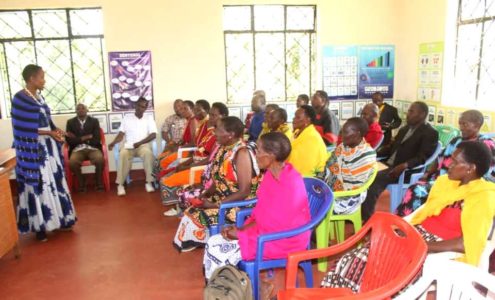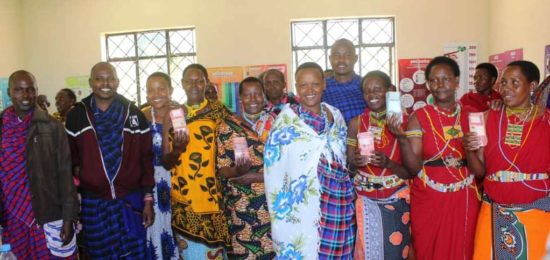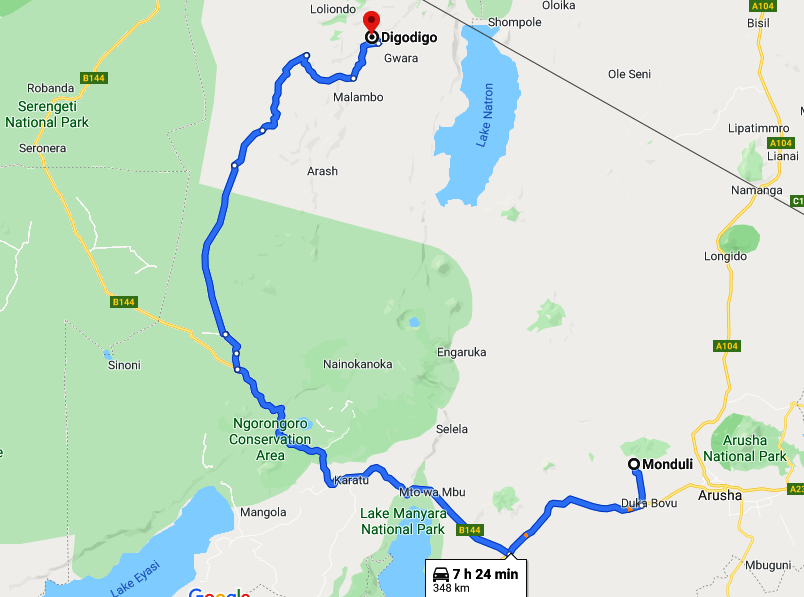
Mesha Singolyo sharing training at Digodigo
The need for collaboration for a better life never lessens.
In the United States we have taken the COVID-19 pandemic as the central concern in our lives. In Tanzania, life continues more normally.
Why the difference? We aren’t predicting outcomes, but we observe Tanzania has a very youthful population. It is a low-income country with much less medical service than in the U.S. Alternatives like home schooling aren’t supported there with technology or parental experience.
Tanzania closed the schools in March but reopened them recently, revising their viewpoint that it would be best for children to continue to learn and receive care at school. The Tanzanian economy is weaker now, especially because tourism stopped. So the Tanzanians are feeling the impact of the pandemic in various ways, but there is a general effort to keep life going as normally as possible.
What is our job now? The International Collaborative works with hundreds of Maasai men and women, and accepts their decisions about how they collaborate and work now. The people, staff, and leaders of the ICSEE are doing what they find best to avoid infection, and are taking good care of themselves. For these reasons, in our photographs of work gatherings you will not see people staying at a distance from one another or wearing masks.
The Maasai life is conducted largely outdoors and they mix with family and others in their own ways. We organize nothing that makes them feel less in control of their own health. The work continues.
Bringing the Project to Digodigo

The people of Digodigo are excited to participate in the ICSEE program
Several years ago,in collaboration with the Global Fund for Widows, the ICSEE organized eleven women’s groups with widows as members. Located in Monduli and Longido districts, the groups continue to thrive.
A generous donation from Judy Lane, Founder of Maasai Partners, has made it possible to organize a new group in Digodigo, a community in the Ngorongoro district in the Rift Valley north, near Kenya.
Lead Organizer Mesha Singolyo hails from this area and we are very pleased to give our strong support to stimulating economic opportunity in her home village.
The people of Digodigo are of the small Sonjo tribe with both farming and livestock traditions. In Digodigo, farming is a cooperative enterprise of men and women.
Upon arrival, ICSEE’s organizing team of seven immediately found a group of women and men waiting and ready for the cooperative bank training and capital input they were bringing.
Digodigo now has an organization that operates with the same methods as the ICSEE widow’s groups. All members buy shares weekly and vote to elect their leaders. The group lends the bank holdings to a collectively-held business and also lends to individual businesses. Individuals may also receive loans for personal needs such as school fees and home construction.
The Digodigo group collected a lot of the capital themselves, adding to the ICSEE funds. They decided to start their collective business with cattle instead of goats because of cattle’s stronger resistance to illness, and the men’s experience with cattle. The new business is now off to a great start with the purchase of young bulls to fatten for the food supply chain.
Kenya provides a particularly strong consumer market for meat, and with Digodigo close to the Kenyan border, we expect their business to do well. We will stay close to them and look forward to sharing their reports with you.